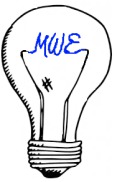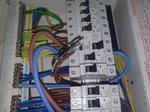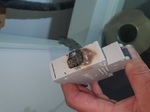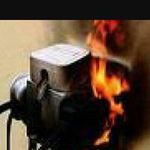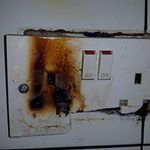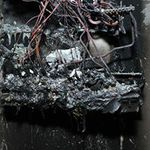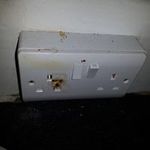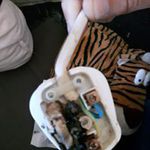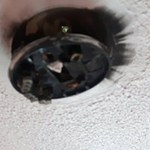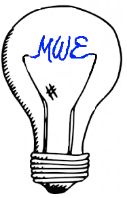Why are my trip switces hot?
A hot circuit breaker is a serious safety concern that
often indicates an underlying electrical problem, as it should only feel slightly warm during normal operation. You should immediately turn off the power to that circuit and contact your expert
electrician My Worthing Electrician to diagnose and fix the issue. A circuit breaker feels hot due to excessive current flow from an overloaded circuit, a faulty or loose connection, a short circuit, a failing appliance, or a damaged or old
breaker. While some warmth is normal, if your breaker is too hot to touch, you should turn off the power, and call your expert electrician, My Worthing Electrician immediately.
Why a Breaker May Be Hot
-
Overloaded circuit:A circuit carrying more current than it's designed for will cause the breaker to overheat.
-
Loose Connections :Poorly tightened wires on the breaker or a poor connection to the consumer unit (fuse box) busbar can create resistance, leading to heat and potential arcing.
-
Faulty Breaker: MCB, RCD, RCBOThe breaker itself might be internally damaged or old and no longer functioning correctly, causing increased resistance and heat.
-
Short Circuit or Faulty :A short circuit, or an appliance with a failing motor, draws too much current, creating excess heat in the circuit and the breaker.
-
Damaged Busbar:The busbar within the consumer unit (fuse box) could be damaged, preventing a good connection with the breaker and causing overheating.
-
Appliance High ambient temperature:If your consumer unit is in a poorly ventilated area, such as a hot loft, the high ambient temperature can contribute to a breaker overheating.
Warning signs of a dangerous electrical issue
If you notice any of these signs in addition to a hot circuit breaker, it is especially critical to call your expert electrician My Worthing Electrician
immediately:
- Burning smell: A burning odor from the electrical panel is a strong indicator of an overheating issue.
- Discoloration: Look for scorch marks or melted plastic on the breaker or the panel.
- Flickering lights: This can signal power fluctuations caused by a loose connection or a faulty breaker.
- Frequent tripping: If the breaker is tripping often, it points to a persistent problem.
- Breaker won't stay reset: If the breaker fails to stay in the "on" position, it indicates a serious issue.
Do not let the below happen to you. Book an EICR and keep yourself and your family safe. Just press the below button and fill out the form and we will do the rest to keep you safe.

